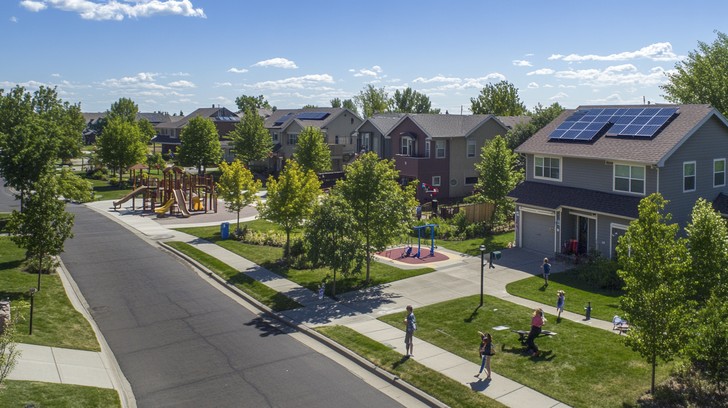
Waste Management in Sustainable Cities: A Path to a Greener Future
In today’s rapidly urbanizing world, the need for effective waste management in sustainable cities has become more critical than ever. As cities grow, so does the volume of waste they produce, posing significant challenges to the environment and public health. However, with innovative strategies and community engagement, cities can transform their waste management systems into sustainable models that promote a cleaner and healthier urban environment.

The Importance of Sustainable Waste Management
Sustainable waste management is essential for reducing the environmental impact of cities. It involves the efficient collection, processing, and disposal of waste materials in a manner that minimizes harm to the environment. By adopting sustainable practices, cities can reduce greenhouse gas emissions, conserve natural resources, and improve the quality of life for their residents.
Key Strategies for Effective Waste Management
1. Reducing Waste at Source
The first step in sustainable waste management is to minimize waste generation. This can be achieved through public awareness campaigns that encourage individuals and businesses to reduce, reuse, and recycle. Initiatives like banning single-use plastics and promoting biodegradable alternatives are effective ways to cut down on waste.
2. Recycling and Reuse
Recycling is a cornerstone of sustainable waste management. Cities can establish comprehensive recycling programs that encourage the separation of recyclable materials from general waste. Partnering with organizations to recycle materials such as paper, glass, and metals can significantly reduce the volume of waste sent to landfills.
Moreover, promoting the reuse of materials through initiatives like swap shops and repair cafes can extend the life of products and reduce waste.
3. Composting
Organic waste, such as food scraps and yard waste, can be composted to produce nutrient-rich soil that can be used in agriculture and landscaping. Composting programs can be implemented at both the community and household levels, reducing the amount of organic waste that ends up in landfills.
4. Waste-to-Energy Technologies
Innovative waste-to-energy technologies can convert non-recyclable waste materials into energy. By using methods such as incineration and anaerobic digestion, cities can generate electricity and heat while reducing the volume of waste that goes to landfills.
The Role of Technology in Waste Management
Technology plays a crucial role in modernizing waste management systems. Smart waste bins equipped with sensors can monitor waste levels and optimize collection routes, improving efficiency and reducing fuel consumption. Additionally, data analytics can help cities track waste generation patterns and identify areas for improvement.
Community Engagement and Education
Engaging the community is essential for the success of waste management initiatives. Cities can organize workshops, educational campaigns, and volunteer programs to raise awareness about sustainable waste practices. By involving residents in decision-making processes, cities can create a sense of ownership and responsibility towards waste management.
Challenges and Solutions in Waste Management
1. Overcoming Infrastructure Limitations
One of the major challenges in waste management is the lack of adequate infrastructure. Cities need to invest in modern waste processing facilities and collection systems to handle the increasing volume of waste. Public-private partnerships can be an effective way to fund and implement these projects.
2. Addressing Financial Constraints
Implementing sustainable waste management practices can be costly. However, cities can explore various funding options, such as government grants, international aid, and green bonds, to alleviate financial burdens.
Case Studies: Successful Waste Management in Cities
1. San Francisco, USA
San Francisco is a leading example of a city with a successful waste management program. The city has set ambitious goals to achieve zero waste by 2025 by implementing comprehensive recycling and composting programs. Through public education campaigns and strict waste separation policies, San Francisco has significantly reduced its landfill contributions.
2. Curitiba, Brazil
Curitiba’s innovative waste management system focuses on community involvement and sustainability. The city offers incentives for residents to participate in recycling programs and has implemented an efficient public transportation system that reduces waste generation from vehicle emissions.
To learn more about urban sustainability, visit Urban Sustainability.
The Future of Waste Management in Sustainable Cities
As cities continue to grow, the need for sustainable waste management will become increasingly important. By embracing innovative technologies, engaging communities, and addressing infrastructure challenges, cities can create waste management systems that contribute to a cleaner, greener future.
For more insights on making cities sustainable and resilient, visit 5 Ways to Make Cities More Sustainable and Resilient.

FAQs
1. What is sustainable waste management?
Sustainable waste management involves using environmentally friendly methods to handle waste, such as reducing, reusing, recycling, and composting, to minimize environmental impact.
2. How can communities contribute to waste management?
Communities can contribute by participating in recycling programs, composting organic waste, and supporting public initiatives that promote sustainable waste practices.
3. What role does technology play in waste management?
Technology enhances waste management through smart systems that optimize collection and processing, improving efficiency and reducing environmental impact.
This article contains affiliate links. We may earn a commission at no extra cost to you.